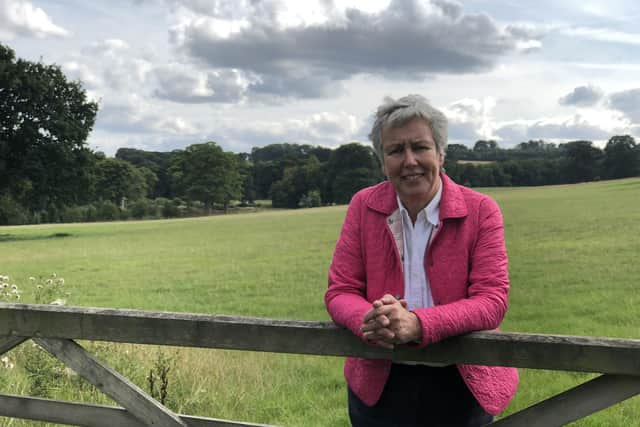Agriculture is facing a time of transformation but farmers must be able to compete on a level playing field with food standards


A dramatic transformation of the sector comes as the Government continues to try to hammer out a trade deal for Brexit amidst the backdrop of the huge economic pressures of the coronavirus pandemic.
The NFU’s North-East regional director, Adam Bedford, said there was a “busy autumn” ahead and stressed the importance of a workable trade deal being agreed before the end of the Brexit transition period in December.
Advertisement
Hide AdAdvertisement
Hide Ad“The EU market is key for agriculture and Yorkshire. Around 40 per cent of what we produce is exported to Europe so we need to get a trade deal right,” he said.


Farming and rural organisations have been at the forefront of the campaign to safeguard the UK’s high food and welfare standards in any future trade deals, not just with the EU but globally.
Fears have been voiced that a lack of formal requirements in the Agricultural Bill, currently with the House of Lords, to uphold these standards would allow cheap imported food into the country, produced to standards that would currently be illegal in the UK.
Baroness McIntosh of Pickering said the greatest threat is that in maintaining the UK’s high standards, the nation imports farm produce at a far lower standard.
Advertisement
Hide AdAdvertisement
Hide AdThese concerns were backed by the public in a petition set up by the NFU which called on the Government to protect UK standards and establish an independent Trade and Agriculture Commission. The petition reached more than one million signatures.
At the end of June, in a letter to the NFU’s president, Minette Batters, International Trade Secretary Liz Truss announced the Government’s support for the body.
Mr Bedford said it was important to ensure farmers, who will be working within the new Environment Land Management Scheme (ELMS) which replaces the EU’s subsidy scheme, were on a level playing field.
“Farmers are up for the challenge, but we can’t compete if standards are different,” he said.
Advertisement
Hide AdAdvertisement
Hide AdThe CLA’s director for the North, Dorothy Fairburn, added: “In the Government’s pursuit of lucrative ‘post-Brexit’ trade deals, we want to ensure that our standards on food and animal welfare are maintained, and not diminished by sub-standard food imports.”
The new legislation laid out in the Agriculture Bill for ELMS will see farmers paid “public money for public goods” with the focus on animal welfare, the environment and sustainability.
Mrs Fairburn said it was an opportunity for the industry to be recognised for the “valuable contribution” it can make in addressing the environment crisis, climate emergency and protection of vital resources.
Farmers will also feel the impact of two other key pieces of legislation currently in the House of Commons, the Environment Bill and the Trade Bill.
Advertisement
Hide AdAdvertisement
Hide AdNFU President Minette Batters said: “These will present huge challenge, change and opportunity but I believe that with the right policy framework and the establishment of a clear understanding of our shared vision for the future, Brexit and the development of our new domestic agriculture policy can be a catalyst for UK farming not just to be the envy of the world, but to provide gold-standard model for high standard, high quality, sustainable food production.”